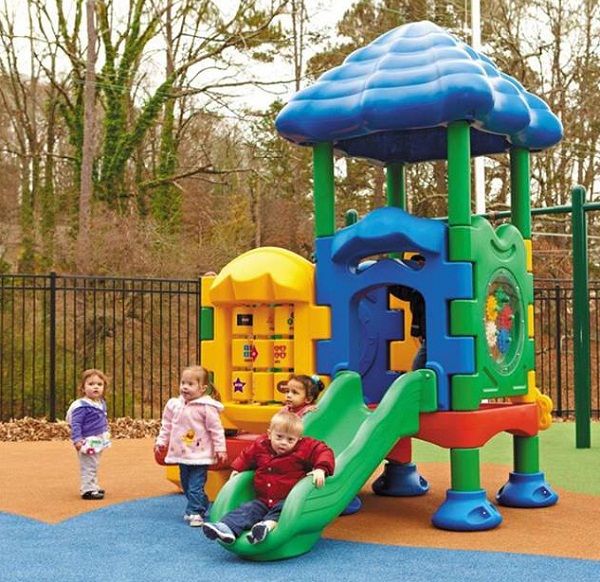One of the biggest differences in the way children grow up now versus earlier, is the time they spend indoors, looking at screens, or cooped up under extreme guardian surveillance and complicated routines. The trend is particularly disturbing because early childhood is the time when crucial cognitive and physical development takes place.
For parents concerned about their kids’ exposure to the dangers of the outside world, there are loads of fun, play-at-home ideas, and activities. Also, new advances in technology have made playgrounds safer than ever, and your child can learn many things outside rather than in the traditional classroom, according to an article published in Playground Experts. Researches show that outdoor play has various benefits for young children. Let’s take a look at the key findings from the latest studies on how outdoor play benefits toddlers and infants.
Provides Healthy Exposure to Sunshine. Playing outdoors for at least an hour can benefit infants and toddlers. Exposure to the sun helps them acquire the required vitamin D levels at six months of age. And vitamin D not only helps in bone development but prevents certain health issues like asthma. Also, sun exposure in moderation at an early age helps keep infections and respiratory tract problems at bay, and lowers the risk of vision problems, says a New York Times article.
Helps Them Grow Healthier. The best form of exercise for infants and toddlers is undoubtedly playing outdoors. This also helps them prevent obesity and heart problems. Kids that play outdoor games have a greater chance of living a healthy, wholesome life as adults, according to a Washington Post article. Playing outside (crawling on the grass or simply being out in the fresh air) promotes better sleep in kids, besides improving their overall health. In fact, in certain parts of the world, infants are encouraged to sleep outdoors under the supervision of adults, according to an article published in The Telegraph.
Helps Develop Life Skills. We all know that developing life skills (such as planning, decision making, problem-solving, negotiation, and multitasking) in kids is important. This can be achieved by letting kids have unstructured time and socialize with other children, according to a Harvard Health Publishing post. This also helps them to devise their own games to amuse themselves, which is necessary for brain development and creativity.
An outdoor game like peek-a-boo helps the child in building self-control skills and improves their memory. On the other hand, a walk in nature with an elder person helps them improve concentration.
Helps Appreciate Nature. Being outdoors helps young children learn and recognize sounds, sights, smells and the like, and improves their motor skills since they get to touch and hold objects in nature. In a nutshell, it provides a stimulating sensory environment for young children, says Brenda Cobb in her article The Importance of Taking Infants and Toddlers Outdoors. Playing outdoors and getting up close and personal with nature is also a great way to build character and confidence, according to a post on National Geographic.
This is because healthy growth also includes the ability to take risks and being free from fear. When they visit the outside world, they can quickly learn how to tackle different situations, how to take risks or work together to achieve a goal.
Even if your kids get physically hurt or feel humiliated in the process of making friends, you should still encourage them to go out and play. Just keep a watch on them to make sure they remain safe. “In risky play, the adult should interpret the signs of the child, giving the necessary support or space that he or she needs,” say researchers Gabriela Bento and Gisela Dias in an article published in Science Direct.











